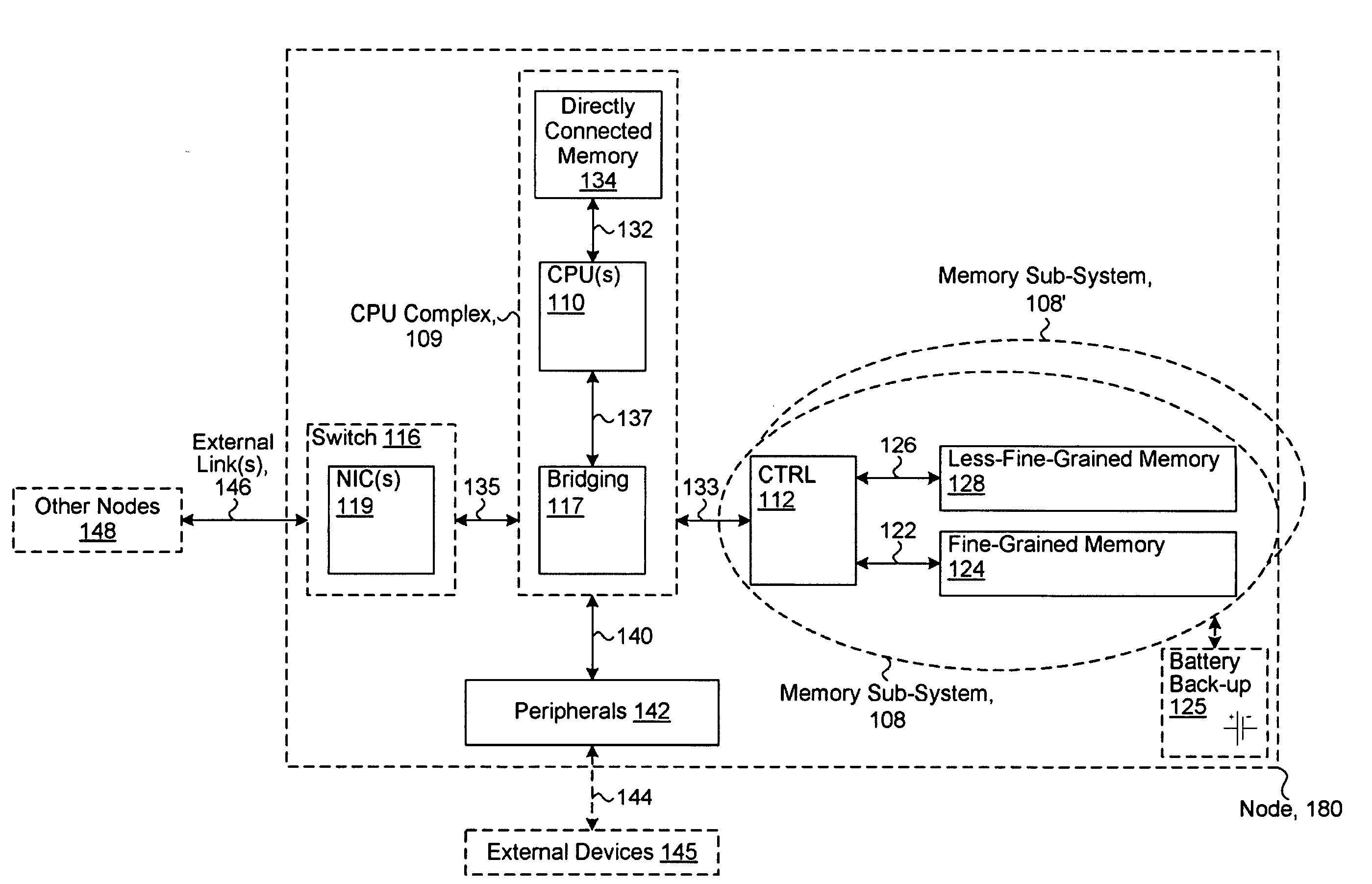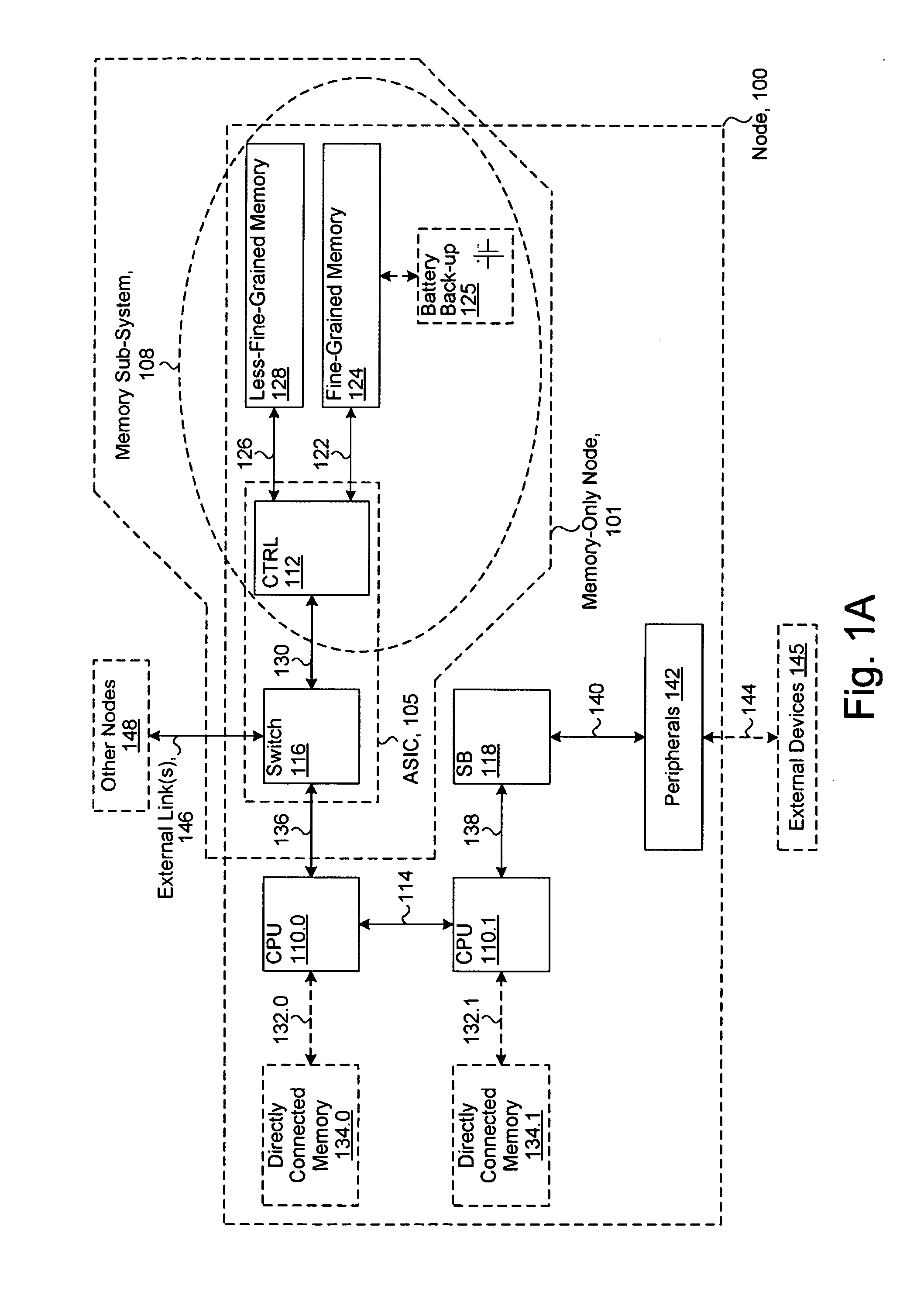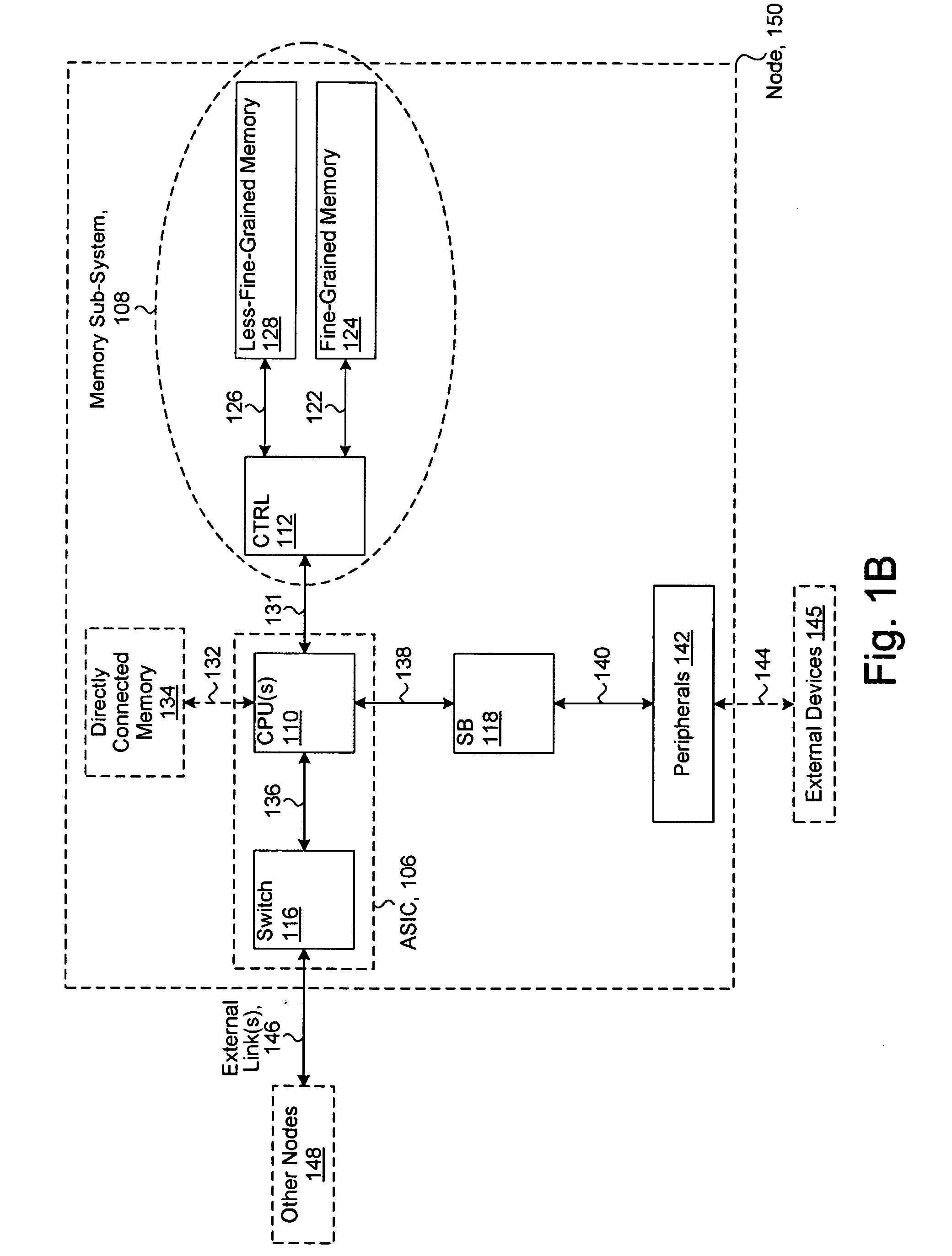System including a fine-grained memory and a less-fine-grained memory
a technology of fine-grained memory and less-fine-grained memory, applied in the field of data processing systems, can solve the problems of limited performance loss of contents after power removal, and limited capacity of high-performance solid-state memory, such as dram,
- Summary
- Abstract
- Description
- Claims
- Application Information
AI Technical Summary
Benefits of technology
Problems solved by technology
Method used
Image
Examples
example embodiments
[0200]In concluding the introduction to the detailed description, what follows is a collection of example embodiments, including at least some explicitly enumerated as “ECs” (Example Combinations), providing additional description of a variety of embodiment types in accordance with the concepts described herein; these examples are not meant to be mutually exclusive, exhaustive, or restrictive; and the invention is not limited to these example embodiments but rather encompasses all possible modifications and variations within the scope of the issued claims.
[0201]EC1) A system including:[0202]a fine-grained memory;[0203]a less-fine-grained memory, at least a portion of the less-fine-grained memory accessible by a processor via an address space;[0204]wherein the less-fine-grained memory is divided into a plurality of independently-writable pages, each of at least some of the pages divided into a plurality of respective logical partitions:[0205]wherein the fine-grained memory includes a...
example hardware embodiment
Techniques
[1480]In some embodiments, various combinations of all or portions of functions performed by a node (such as node 100 of FIG. 1A), a system including a plurality of nodes (such as system 190 in FIG. 1C), an ASIC including an interconnect switch and a memory sub-system controller (such as ASIC 105 in FIG. 1A), an ASIC including an interconnect switch and one or more CPUs (such as ASIC 106 in FIG. 1B), an interconnect switch (such as switch 116 of FIG. 2A), a memory sub-system (such as memory sub-system 108 of FIG. 3A), a memory sub-system controller (such as memory sub-system controller 112 of FIG. 3B), a less-fine-grained memory DIMM including a control CPLD (such as DIMM 305.A1 of FIG. 3A), a control CPLD (such as CPLD 328.A1 of FIG. 3A), and portions of a processor or a microprocessor providing all or portions of the aforementioned functions, are specified by descriptions compatible with processing by a computer system (e.g. Verilog, VHDL, or any similar hardware descrip...
PUM
 Login to View More
Login to View More Abstract
Description
Claims
Application Information
 Login to View More
Login to View More - R&D
- Intellectual Property
- Life Sciences
- Materials
- Tech Scout
- Unparalleled Data Quality
- Higher Quality Content
- 60% Fewer Hallucinations
Browse by: Latest US Patents, China's latest patents, Technical Efficacy Thesaurus, Application Domain, Technology Topic, Popular Technical Reports.
© 2025 PatSnap. All rights reserved.Legal|Privacy policy|Modern Slavery Act Transparency Statement|Sitemap|About US| Contact US: help@patsnap.com



